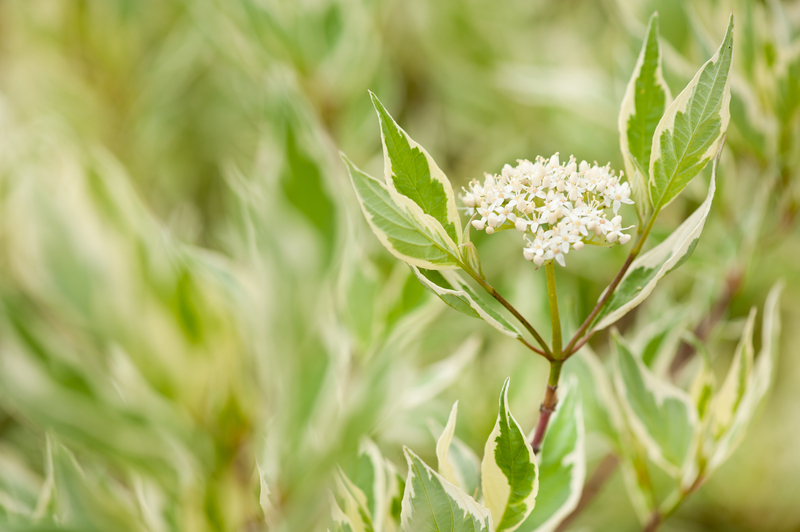Organic Soil Amendments to Help Your Plants Thrive
Posted on 03/06/2024
Organic gardening has become increasingly popular in recent years, as more and more people are becoming concerned about the harmful effects of chemical fertilizers and pesticides on their health and the environment. Organic soil amendments are an essential component of this type of gardening, as they provide a natural and sustainable way to improve soil fertility and help plants thrive. In this article, we will explore the benefits of using organic soil amendments and how they can be incorporated into your gardening routine.
What are Organic Soil Amendments?
Organic soil amendments are materials that are added to the soil to improve its physical properties, nutrient content, and overall health. They are derived from natural sources such as plant and animal waste, decomposed organic matter, and mineral deposits. These amendments work by nourishing the soil with essential nutrients, promoting beneficial microorganisms, improving soil structure, and increasing water retention.

Types of Organic Soil Amendments
1. Compost
Compost is one of the most common types of organic soil amendment used by gardeners. It is made by decomposing organic materials such as kitchen scraps, yard waste, manure, and leaves. Compost is rich in essential nutrients like nitrogen, phosphorus, and potassium, making it a valuable fertilizer for plants. Additionally, compost helps improve soil structure by increasing its ability to hold nutrients and water.
2. Manure
Manure is another popular organic amendment that provides essential nutrients to plants while also improving soil structure. It contains high levels of nitrogen, phosphorus, and potassium, making it an excellent choice for heavy feeders like tomatoes and corn. However, it is important to use well-aged manure to avoid burning plants with excess nitrogen.
3. Peat Moss
Peat moss is a lightweight material made from decomposed sphagnum moss found in bogs. It has a high water-holding capacity and can help improve drainage in clay soils. Furthermore, peat moss adds organic matter to the soil, which is crucial for maintaining soil fertility.
4. Fish Emulsion
Fish emulsion is a liquid fertilizer made from processed fish by-products. It is a rich source of nitrogen and other essential nutrients that plants need to thrive. Fish emulsion is especially beneficial for starting seedlings and promoting plant growth during the growing season.
5. Seaweed or Kelp Meal
Seaweed or kelp meal is derived from dried and ground seaweed, which is rich in trace minerals, vitamins, and amino acids. It improves soil structure and acts as a slow-release fertilizer, providing plants with a steady supply of nutrients over time.
Pros of Using Organic Soil Amendments
1. Safe for People, Pets, and the Environment
Using chemical fertilizers and pesticides can pose a significant risk to our health and the environment. Unlike these conventional methods, organic soil amendments are safe for people, pets, wildlife, and the ecosystem as a whole.
2. Improves Soil Fertility and Structure
Organic amendments help replenish essential nutrients in the soil while also improving its structure. This creates an ideal environment for plant roots to grow deeper, making them less susceptible to diseases and extreme weather conditions.
3. Promotes Beneficial Microorganisms
Organic soil amendments provide food and habitat for beneficial microorganisms such as bacteria and fungi that play crucial roles in breaking down organic matter into nutrients that plants can use.
Cons of Using Organic Soil Amendments
1. Slow-acting
Unlike chemical fertilizers that provide quick results, organic amendments take longer to break down and release nutrients into the soil. Therefore, they may not be suitable for plants that require immediate nutrition.
2. May Contain Weed Seeds or Harmful Bacteria
Some organic materials used as soil amendments may contain weed seeds or harmful bacteria that could cause problems in your garden if not properly composted or treated beforehand.
Tips for Incorporating Organic Soil Amendments
1. Use only well-aged or composted amendments to avoid burning your plants with excess nutrients.
2. Test your soil before adding any amendments to determine its nutrient levels and pH. This will help you choose the right type and amount of amendment for your plants.
3. Mix the amendments thoroughly into the top 6-8 inches of soil to ensure even distribution and maximum benefits.

Takeaways
Organic soil amendments are an essential component of organic gardening, providing a natural and sustainable way to improve soil fertility and promote plant growth. They offer numerous benefits, including being safe for people and the environment, improving soil structure, and promoting beneficial microorganisms. However, they may take longer to show results and could potentially contain weed seeds or harmful bacteria if not properly treated beforehand.
Conclusion
In conclusion, incorporating organic soil amendments into your gardening routine can greatly benefit your plants while also contributing to a healthier environment. With a variety of options available, such as compost, manure, peat moss, fish emulsion, and seaweed meal, it is easy to find the right amendment for your specific needs. Remember to follow the tips mentioned above for optimal results, and always choose certified organic products for the best quality. Happy gardening!
Latest Posts
Inspiring Ways to Refresh Your Garden This Autumn Season
A Step by Step Guide to Keeping Artificial Grass Fresh and Spotless
Creative Planting Ideas to Design a Serene Zen Oasis







